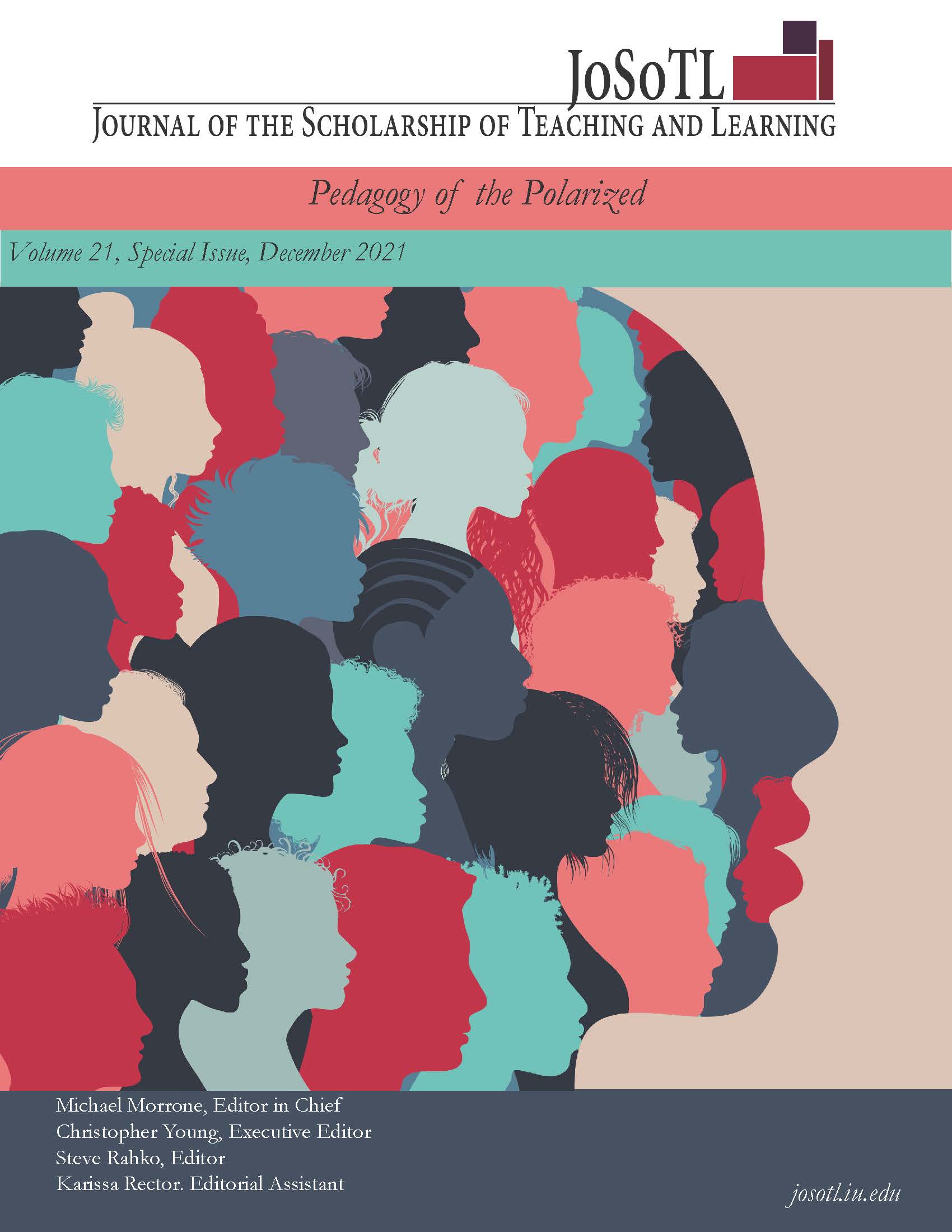Preface
Though the January 6 incursion on the United States Capitol remains a fresh and stark signal of political polarization in the United States, polarization in the U.S. is not new. The country’s history is replete with well-known examples. We can recall the polarization of the 1790s that culminated in Alexander Hamilton’s 1804 death in a duel with Aaron Burr.
When our guest editor Stephen Rahko proposed the topic of this special issue in the fall of 2020, the editorial team embraced it enthusiastically with a strongly-held belief that higher education needs to in fact aim high—it needs to prepare a citizenry capable and willing to engage in critical thinking with the empathy necessary to undergird the progress of our society, the pursuit of knowledge and happiness, and the achievement and maximization of justice for all. We contemplated this issue as a venue to interrogate rigorously and openly where higher ed is in meeting these needs and how our colleagues are pursuing education in brave spaces. We hoped for manuscripts from a variety of perspectives that would present ideas and research to spark dialogue and respectful intellectual tension. We believe in the words spoken by the late bell hooks that:
“The moment we choose to love we begin to move against domination, against oppression. The moment we choose to love we begin to move towards freedom, to act in ways that liberate ourselves and others.”– Outlaw Culture: Resisting Representations, 1994
JoSoTL is an open access journal read globally, so we always expect a diverse readership. Some of the articles may cause discomfort; however, we hope you find them all to be thought provoking. If they inspire you to reflect, critique, or study the authors’ arguments and pedagogical practices, please know we are interested in contributions to the literature inspired by this issue, subject to rigorous standards and peer review.
We would like to thank Henry Giroux, McMaster University Chair for Scholarship in the Public Interest and Director of the McMaster Centre for Research in the Public Interest, for writing the foreword and placing this issue in context, to Lemuel Watson, Associate Vice President for Diversity, Equity, and Multicultural Affairs, Interim Vice Provost of Diversity and Inclusion, Senior Scientist at the Kinsey Institute, and Provost Professor of School of Education, for writing the afterword in which he emphasizes the need for this issue and elevates major themes, and to our guest editor, Steve Rahko, Lecturer, Kelley School of Business, Indiana University, for his tireless work to take this special issue from ideation to publication.
Michael Morrone
Editor-in-Chief
Indiana University Bloomington
Christopher J. Young
Executive Editor
Indiana University Northwest
Published: 2021-12-29
